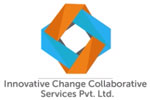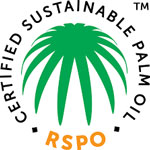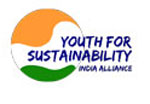Strengthening North-South Dialogue for Co-operation and Action on Business and Human Rights

This session seeks to examine the gaps in existing relationships between businesses and their suppliers, especially in terms of due diligence practices, supply chain transparency and disclosures. Additionally, it discusses how principles of ‘shared responsibility’ and ‘multi-stakeholder regional collaboration’ can be reinforced to make supply chains more resilient to crises and disruptions.
Collaboration as a Lever of Change

The aim of the session is to examine collaborative leadership and how it can work as a lever of change. Learnings from case studies of changemakers that have applied collaborative approaches towards addressing challenges are also discussed while highlighting the potential for collaboration for changemaking with respect to climate action.
Family Friendly Policies (FFPs): A pathway for responsible value chain and acceleration towards SDGs

This session seeks to understand the scope, experiences, financial benefits, competitive advantage and challenges of businesses together with the role of stakeholders in integrating FFPs in the value chain, during the Covid pandemic.
Roundtable Discussion on a Sustainability Framework to nudge FPOs and Markets closer



This session aims at developing an understanding of the emerging market opportunities for FPOs and exploring how such a framework would help FPOs have better access to markets. Feedback and inputs for the proposed framework from a wider network are also sought.
A Multistakeholder Dialogue on Sharing Best Practices & Way Forward to Eliminate Child Labour in the Indian Apparel & Textile Value Chain


This session aims to explore the current situation of child labour in apparel and textile supply chains beyond Tier 2. It also discusses the tools and frameworks that can be adapted by businesses for a child labor free apparel and textile value chain.
Integrating Sustainable Production and Trade of Forest linked Commodities

This session highlights the significant role government mechanisms play in eliminating deforestation, conversion and social risks from commodities supply chains in India and globally with a focus on edible oils (palm, soyabean).
India Sustainable Palm Oil Dialogue, 2021

This session aims to understand the perspectives of industry and thought leaders about the challenges, risks, and opportunities for increasing the production of sustainable palm oil in India. Additionally, the session discusses a potential roadmap for India to become a role model for the sustainable production of palm oil while building broader multi stakeholder consensus about the business opportunity of sourcing sustainable palm oil and the role brands and consumers can play.
Made in India: Promoting Growth and Resilience through the UN Guiding Principles on Business and Human Rights

This session aims to increase awareness and knowledge among the private sector on the Business and Human Rights Agenda. It also elaborates the business case for responsible business while unpacking the significance of the National Action Plan on Business and Human Rights for the Private Sector. The global experiences on NAPs on BHR and correlation with investor interest, regulation and business expectations (HRDD) are also highlighted.
Exploring Best Practices to Eliminate Child Labour in Supply Chains


This session delineates the challenges and priorities in mitigating child labour in supply chains as well as discuss the best practices, relevant mechanisms, tools, and frameworks that can be adopted by businesses and other stakeholders for a child-labour-free value chain.
Brick by Brick - Exploring Inclusive & Effective Business Models for the Brick Sector in India

This session focuses on how we might create awareness among migrant labour regarding their rights related to workplace standards and basic rights; how might we address lack of trust and security in financial give and take between brick kiln owners, employees and banks; how might we enable the brick kiln owners to upgrade to eco conscious products and socially responsible manufacturing practices.
Why Should Sustainability Standards Engage Millennials?


The aim of this session is to highlight the need and best-case practices for sustainability standards to engage millennials while also discussing some of the projects led by civil society organizations to engage millennials for climate action. The role of media in promoting sustainable lifestyle is also outlined.
Exploring alternate livelihood options for tea plantation workers to ensure a better living condition

This session explores alternative options of livelihood which are available or can be explored for the tea plantation garden workers. It invites opinions/suggestions/collaborations from industry bodies, government departments like the Tea Tribes Welfare, certifying agencies, community federations and CSOs which are working around this issue.
Collaboratives approaches for setting Industry Expectations in sustainability and food safety

This session discusses the current industry practices pertaining to collaboration on key pre-competitive issues while also elaborating the current benchmarking tools available to companies.
Contribution of EU Businesses in Promoting Sustainability and SDGs in India: Challenges & Opportunities

This session looks at the evolving trade and investment relations between India and the EU and seeks to understand the implications of EU mandatory supply chain due diligence legislation and other EU initiatives (such as the Green Deal, etc.) on trade and investment between India and EU. It also elaborates the opportunities for EU businesses to collaborate for scaling up impacts on Sustainability and SDGs in India.
Multi-stakeholder Partnerships for Sustainable Forest Management and Livelihoods

This session highlights the opportunities for short- and long- term market linkages with communities as suppliers as well as the potential forest landscapes for procurement.

